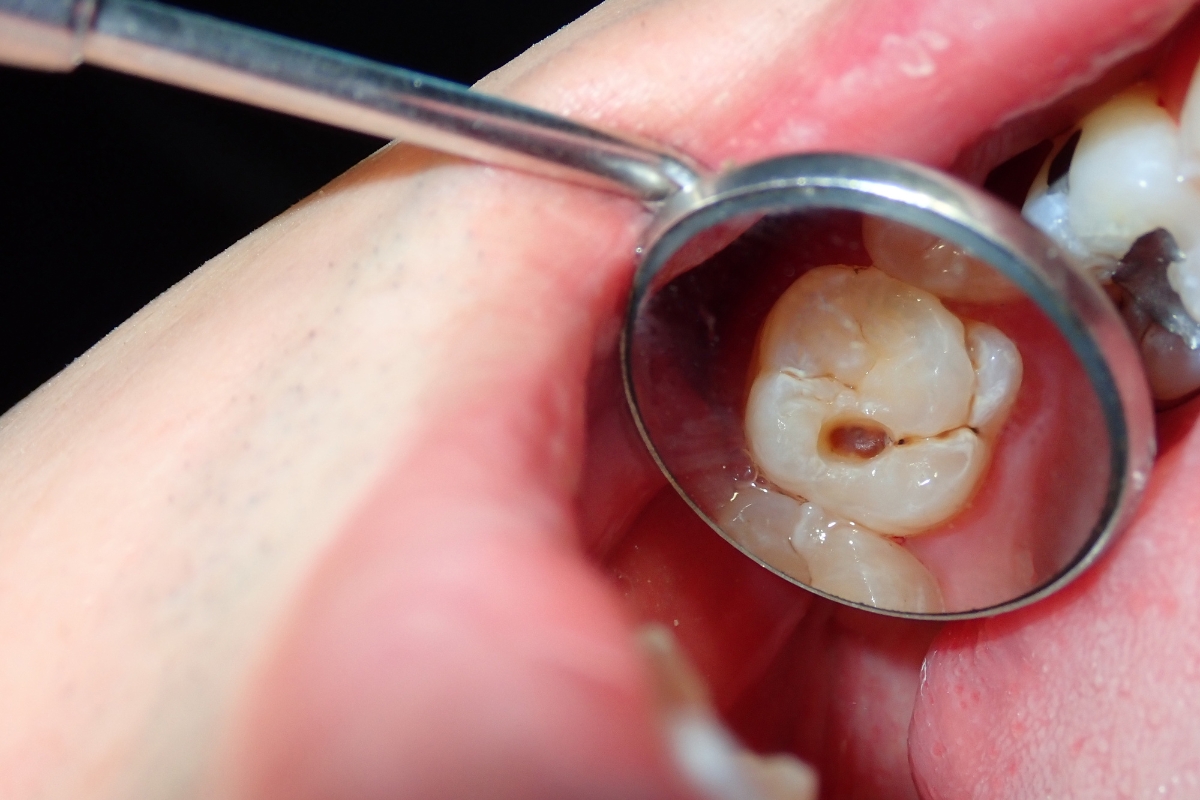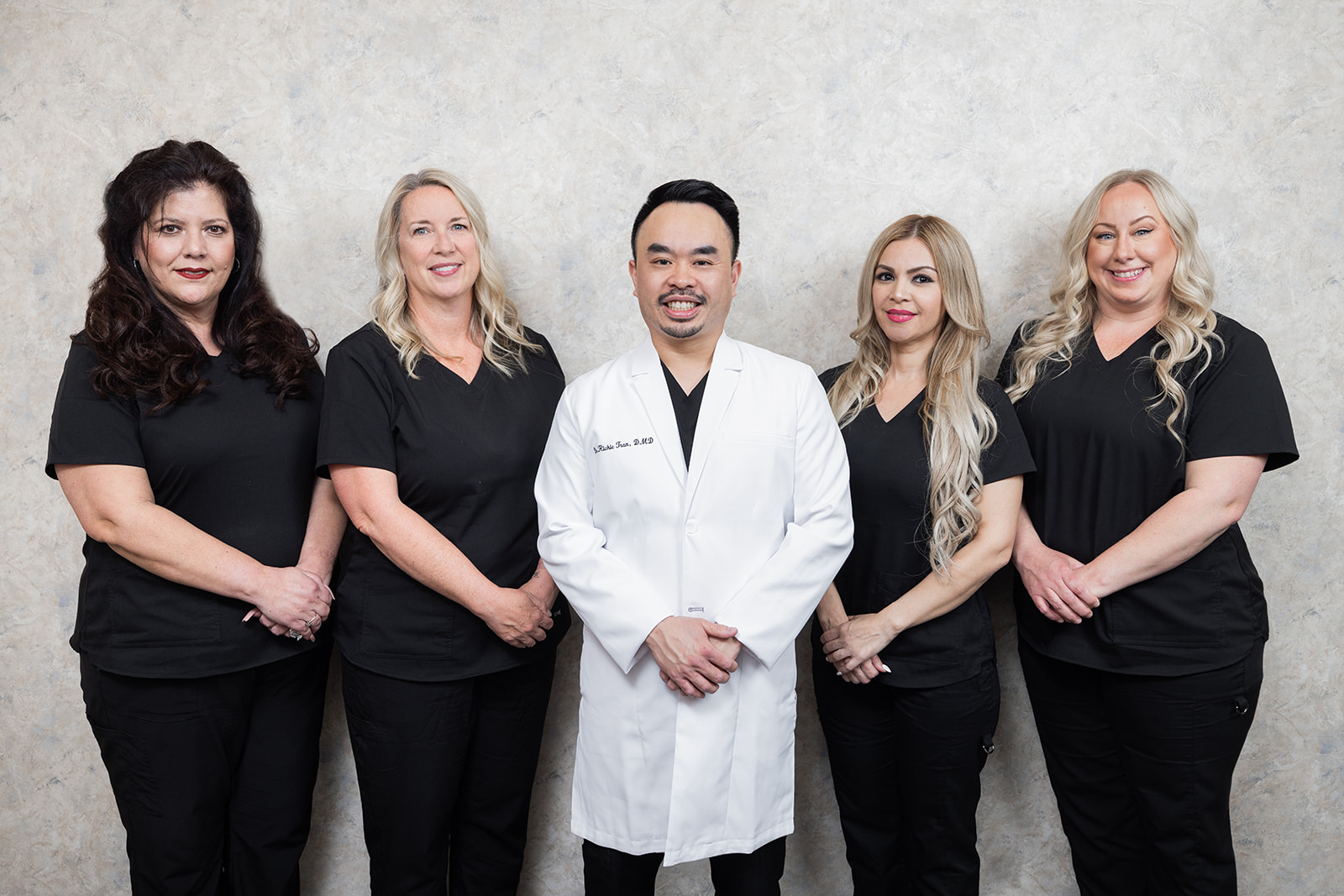
Cavities are a common dental problem that affects people of all ages. They occur when tooth decay leads to the destruction of the enamel, forming holes or “cavities” in the teeth. Many people wonder if it’s possible to heal a cavity at home, especially in the early stages of decay. This blog will discuss whether you can reverse a cavity, how to address early decay, and when to seek professional dental care.
Can You Reverse a Cavity?
The answer depends on the stage of the cavity. Early decay, often called “white spot lesions,” can sometimes be reversed with good oral hygiene and dietary changes. However, once a cavity has progressed beyond the enamel into the dentin or pulp, it cannot be healed at home and requires professional dental treatment.
Understanding Tooth Decay
To understand if you can heal a cavity at home, it’s important to understand how tooth decay progresses:
- Demineralization: The process starts when bacteria in plaque produce acids that attack the enamel, causing it to lose minerals.
- Enamel Erosion: If untreated, demineralization continues, weakening the enamel and eventually creating a cavity.
- Dentin Involvement: Once the cavity reaches the dentin (the layer under the enamel), it’s much harder to reverse. This stage usually requires restorative dental treatments like fillings or crowns.
Reversing Early Decay
If you’re looking to heal a cavity at home, focus on the very early stages of tooth decay. Here are some effective strategies to help reverse early decay:
Improve Your Oral Hygiene
- Brush Twice Daily: Use fluoride toothpaste to help remineralize your enamel. Brush for at least two minutes each time, ensuring you cover all surfaces of your teeth.
- Floss Daily: Flossing removes food particles and plaque from between your teeth, preventing further decay.
Use Fluoride Products
Fluoride plays a vital role in remineralizing teeth. Consider the following:
- Fluoride Toothpaste: Regularly using fluoride toothpaste can help strengthen your enamel and reduce the risk of cavities.
- Fluoride Mouth Rinse: Incorporating a fluoride mouth rinse into your routine can provide additional protection against decay.
Adjust Your Diet
What you eat can significantly affect your dental health. Consider these dietary tips:
- Limit Sugary Foods and Drinks: Sugary substances fuel the bacteria that produce cavity-causing acids. Reduce your intake of soda, candy, and other high-sugar items.
- Increase Calcium and Phosphorus Intake: Foods rich in calcium (like dairy products) and phosphorus (like meats and nuts) can help strengthen your enamel.
- Stay Hydrated: Drinking plenty of water, especially fluoridated water, can help wash away food particles and acids.
Consider Remineralization Products
Several products can aid in the remineralization process, including:
- Calcium Phosphate Paste: This paste helps deliver essential minerals to your teeth, promoting remineralization.
- Xylitol: This natural sugar substitute can inhibit the growth of cavity-causing bacteria and promote saliva production, which helps neutralize acids.
How to Get Help for Your Cavity
While healing a cavity at home is possible in the early stages, it is essential to know when to seek professional help. Here’s what to consider:
Recognizing Signs of a Problem
Be aware of the signs that indicate your cavity may have progressed beyond the point of home treatment:
- Persistent Toothache: A toothache that doesn’t go away can indicate deeper decay or infection.
- Sensitivity to Hot and Cold: Increased sensitivity may suggest that decay has reached the dentin layer of the tooth.
- Visible Holes or Pits: If you notice visible holes or pits in your teeth, it’s a clear sign that professional treatment is necessary.
Seeking Professional Dental Care
If you suspect that your cavity has progressed, it’s crucial to see a dentist. They can assess the situation and recommend appropriate treatments, which may include:
- Fillings: For cavities that have penetrated the enamel, fillings can restore the tooth’s structure and function.
- Crowns: If the decay is extensive, a crown may be needed to cover and protect the remaining tooth structure.
- Root Canals: In cases where decay has reached the pulp of the tooth, a root canal may be required to remove infected tissue.
Regular Dental Check-ups
Preventive care is essential for maintaining dental health. Regular check-ups can help catch cavities in their early stages, allowing for timely intervention. Most dental professionals recommend visits every six months.
Although you may be able to treat a cavity at home in its early stages, it’s essential to understand the limitations of home treatment. By maintaining good oral hygiene, using fluoride products, and making dietary changes, you can potentially reverse early decay. However, if you experience symptoms of a more advanced cavity, it’s crucial to seek professional dental care. Remember, regular dental check-ups are your best defense against cavities and other dental problems. Prioritize your oral health to keep your smile bright and cavity-free!


